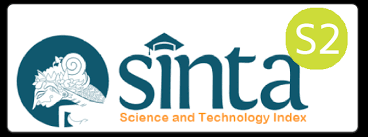Variation of Tasks as a Strategy to Enhance Students’ Learning of Algebra
Abstract
Algebra challenges students and teachers alike. Students find algebra abstract. In particular the structural conception of algebra confounds students. Why should the task: (a) simplify x2 + 3x + 2 be any different from; (b) solve x2 + 3x + 2 = 0? Despite their best efforts, teachers find that many students continue to solve task (a) when there is no reason for doing so. Research shows that these two tasks require students to have constructed different meanings of structure and meanings of letters for such algebraic objects. What does it mean to simplify and what does it mean to solve? What meanings do letters have in each of these cases? In this talk, I wish to share how simple yet innovative strategies could be used to help students discern one set of tasks from another. These strategies, underpinned by the theory of variation (Marton & Tsui, 2004) were tested out by teachers in Singapore. Their work showed that students improved in their performance with various types of algebra tasks. Students’ improvements were reflected in terms of their capacity to justify their choices.
Keywords
Full Text:
PDFReferences
Amutha d/o Annathurai (2010). Factorization of algebraic expressions: Identifying the different categories of factorisation improve students’ ability in algebraic factorization. Term paper submitted for the capstone module Critical Inquiry MMM800.
Baddeley, A. D. (1996). Exploring the central executive. Quarterly Journal of Experimental Psychology, 49A, 5-28.
Baddeley, A. D., & Hitch, G. (1974). Working memory. In G. H. Bower (Ed.), The psychology of learning and motivation: Advances in research and theory (Vol. 8, pp. 47-89). New York: Academic Press.
Bull, R., & Scerif, G. (2001). Executive Functioning as a Predictor of Children's Mathematics Ability: Inhibition, Switching, and Working Memory. Developmental Neuropsychology, 19(3), 273 - 293.
Chua, J. (2010). Do engaging students in sorting tasks improve students’ capacity to differentiate expressions from equations? Yes and No. Term paper submitted for the capstone module Critical Inquiry MMM800.
Davis, R. B. (1975). Cognitive processes involved in solving simple algebraic equations. Journal of Children’s Mathematical Behavior, 1(3), 7 – 35.
Fey, J. T. (Ed.). (1984). Computing and mathematics: The impact on secondary school curricula. College Park: The University of Maryland.
Gathercole, S. E., Alloway, T. P., Kirkwood, H. J., Elliott, J. G., Holmes, J., & Hilton, K. A. (2008). Attentional and executive function behaviours in children with poor working memory. Learning and Individual Differences, 18(2), 214-223.
Kuchemann, D (1981), ‘Algebra’. In Hart, K. M. (Ed), Children’s Understanding of Mathematics: 11-16. London: John Murray; Athenaeum Press Ltd.
Lee, K., Ng, E. L., & Ng, S. F. (2009). The contributions of working memory and executive functioning to problem representation and solution generation in algebraic word problems. Journal of Educational Psychology, 101(2), 373-387.
Main, A. (2006). Factorization of algebraic expressions: Perceptions and misconceptions held by Secondary 3 Express and Normal Academic students. A dissertation submitted in part fulfilment for the degree of Master of Education, National Institute of Education, Nanyang Technological University. Singapore.
Marton, F., & Tsui, A. B. M. (2004). Classroom discourse and the space of learning. Mahwah. N.J.: Lawrence Erlbaum.
Mason, J. Burton, L. & Stacey, K. (1985). Thinking mathematically. Wokingham: UK:Addison-Wesley Pub. Co.
Miyake, A., Friedman, N. P., Emerson, M. J., Witzki, A. H., Howerter, A., & Wager, T. D. (2000). The unity and diversity of executive functions and their contributions to complex “frontal lobe” tasks: A latent variable analysis. Cognitive Psychology, 41, 49–100.
Teo, L. S. (2010). Students’ achievement and difficulties faced in the factorisation of algebraic expressions. Term paper submitted for the capstone module Critical Inquiry MMM800.
Usiskin, Z. (1988). Conceptions of School Algebra and Uses of Variables. In A. F. Coxford & A. P. Shulbert (Eds.) The Ideas of Algebra, K-12. 1988 Yearbook. Reston, Virginia:National Council of Teachers of Mathematics.
Vygotskii, L. S. (1978). Mind in society: The development of higher psychological processes. Cambridge, Mass.: Harvard University Press.
DOI: https://doi.org/10.46517/seamej.v1i1.10
Refbacks
- There are currently no refbacks.
Indexed by:
Southeast Asian Mathematics Education Journal
SEAMEO Regional Centre for QITEP in Mathematics
Jl. Kaliurang Km 6, Sambisari, Condongcatur, Depok, Sleman
Yogyakarta, Indonesia
Telp. +62 274 889955
Email: seamej@qitepinmath.org
p-ISSN: 2089-4716 | e-ISSN: 2721-8546
Southeast Asian Mathematics Education Journal is licensed under a Creative Commons Attribution 4.0 International License
View My Stats
Supported by:



